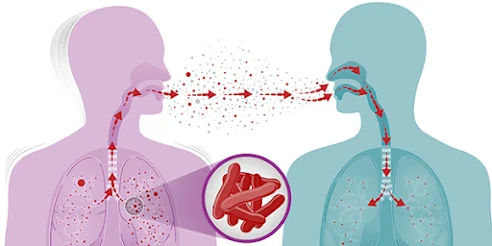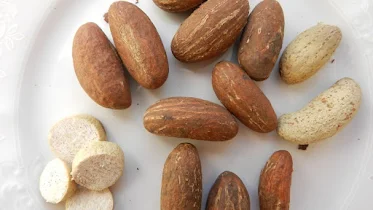Home Remedies to Treat Tuberculosis Naturally at Home: How To Treat Tuberculosis Using Natural Medicine
Tuberculosis (TB) is a potentially chronic infectious bacterial disease that mainly affects your lungs. The bacteria that cause tuberculosis are spread from one person to another through tiny droplets released into the air via coughs and sneezes. Most people who are exposed to TB never develop symptoms because the bacteria can live in an inactive form in the body. But if the immune system weakens, such as in people with HIV or elderly adults, TB bacteria can become active. In their active state, TB bacteria cause death of tissue in the organs they infect. Active TB disease can be fatal if left untreated.
Symptoms of TB in the lungs may include:
Chronic cough that leads to coughing out blood or mucus.
Weight loss
Loss of appetite
Weakness or fatigue
Fever
Night sweats
Causes of Tuberculosis
Tuberculosis is caused by bacteria that spread from person to person through microscopic droplets released into the air. This can happen when someone with the untreated, active form of tuberculosis coughs, speaks, sneezes, spits, laughs or sings.
Although tuberculosis is contagious, it's not easy to catch. You're much more likely to get tuberculosis from someone you live or work with than from a stranger. Most people with active TB who've had appropriate drug treatment for at least two weeks are no longer contagious.
HIV and TB
Since the 1980s, tuberculosis cases have increased dramatically because of the spread of HIV, the virus that causes AIDS. HIV suppresses the immune system, making it difficult for the body to control TB bacteria. As a result, people with HIV are much more likely to get TB and to progress from latent to active disease than are people who aren't HIV positive.
Drug-resistant TB
Tuberculosis also remains a major killer because of the increase in drug-resistant strains. Over time, some TB germs have developed the ability to survive despite medications. This is partly because people don't take their drugs as directed or don't complete the course of treatment.
Drug-resistant strains of tuberculosis emerge when an antibiotic fails to kill all of the bacteria it targets. The surviving bacteria become resistant to that drug and often other antibiotics as well. Some TB bacteria have developed resistance to the most commonly used treatments, such as isoniazid and rifampin (Rifadin, Rimactane).
Some TB strains have also developed resistance to drugs less commonly used in TB treatment, such as the antibiotics known as fluoroquinolones, and injectable medications including amikacin and capreomycin (Capastat). These medications are often used to treat infections that are resistant to the more commonly used drugs.
Risk factors
Anyone can get tuberculosis, but certain factors can increase your risk, including:
Weakened immune system
A healthy immune system often successfully fights TB bacteria. However, several conditions and medications can weaken your immune system, including:
HIV/AIDS
Diabetes
Severe kidney disease
Certain cancers
Cancer treatment, such as chemotherapy
Drugs to prevent rejection of transplanted organs
Some drugs used to treat rheumatoid arthritis, Crohn's disease and psoriasis
Malnutrition or low body weight
Very young or advanced age
Traveling or living in certain areas
Your risk of getting tuberculosis is higher if you live in, emigrate from or travel to areas with high tuberculosis rates. Areas include:
Africa
Asia
Eastern Europe
Russia
Latin America
Other factors
Using tobacco. Tobacco use greatly increases the risk of getting TB and dying of it.
Working in health care. Regular contact with people who are ill increases your chances of exposure to TB bacteria. Wearing a mask and frequent hand-washing greatly reduce your risk.
Living or working in a residential care facility. People who live or work in prisons, homeless shelters, psychiatric hospitals or nursing homes are all at a higher risk of tuberculosis due to overcrowding and poor ventilation.
Living with someone infected with TB. Close contact with someone who has TB increases your risk.
Home Remedies to Treat Tuberculosis Naturally
Natural therapy is a good option to treat it:These are the steps:
1. Get 20-25 pieces of bitter cola (Garcinia kola), ginger of equal quantity and 3 bulbs of garlic. (How To make Ginger Tea and Their Benefits)
2. Grind and add a bottle of pure honey. (Health Benefits Of Honey: Healing Properties of Honey)
3. Take 1 spoon 3 times daily for 1-2 months.














The hand of the LORD reaches far and wide to heal and to bless! Thanks for being such a noble instrument in the hand of God.